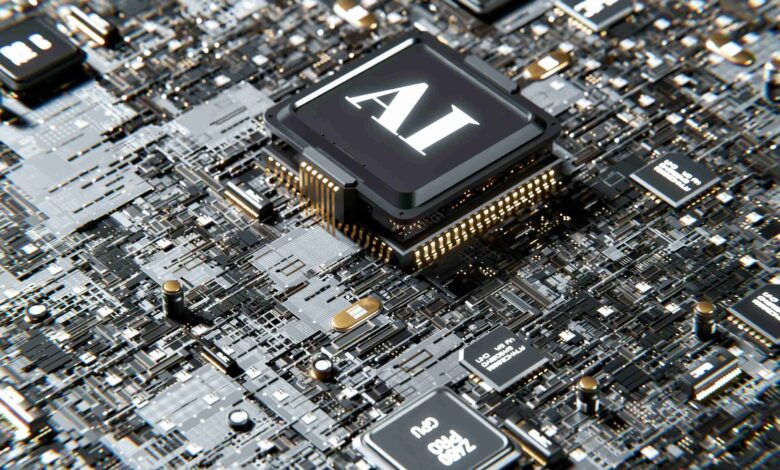
The adoption of Artificial Intelligence (AI) in the workplace is accelerating, with the technology expected to contribute $19.9 trillion to the global economy through 2030. It is transforming how we work, and according to a recent IT Skills and Salary report, 51% of IT professionals believe that AI has made them quicker and their job easier. AI is enhancing human capabilities, streamlining tasks, and improving overall productivity.
However, despite its transformative potential, many organisations face significant skills gaps when it comes to fully leveraging AI. It has been reported that 65% of IT leaders believe that their teams lack the expertise needed to maximise the technology’s benefits. The rapid pace of technological change means it is now essential for both businesses and individuals to develop advanced AI skills to collaborate productively with the technology.
To succeed in an AI-driven workplace, talent need a combination of technical expertise and ‘power skills’ such as critical thinking, ethical understanding and collaboration. These skills are essential for designing innovative AI solutions while addressing the challenges and opportunities associated with its adoption. But how do we get there?
An effective training strategy starts with assessing your workforce’s existing AI skills to identify gaps. Conducting baseline evaluations can help map current skill levels against skill benchmarks to reveal any capability gaps. This approach ensures targeted skill enhancement, optimising resource use and saving time.
Here are the skills and proficiencies shaping the future of work.
Developing technical expertise
Building technical proficiency is crucial to ensure the workforce is well-equipped to work alongside AI and utilise the technology effectively. This involves understanding programming languages, gaining hands-on experience with machine learning frameworks, and honing data analysis and visualisation skills.
- Programming skills
Programming skills lay the foundation for AI development. Python stands out for its simplicity and extensive libraries including NumPy, pandas and TensorFlow, which support AI and machine learning tasks.
Developers often use TensorFlow to design and train deep learning models for applications such as image recognition and natural language processing. Meanwhile, R is commonly used for statistical analysis and data visualisation, making it particularly suitable for examining trends within data sets. Java is frequently chosen for large-scale systems, enabling the integration of AI into enterprise-level applications or the development of AI-powered chatbots.
- Machine learning skills
To excel when using AI, mastering machine learning is essential. This requires an understanding of various learning types like supervised, unsupervised, and reinforcement learning. A solid grasp of algorithms such as decision trees, neural networks, and support vector machines is crucial for developing intelligent systems that improve over time.
Frameworks like Scikit-learn simplify the implementation of these algorithms, enabling applications ranging from sales forecasting to fraud detection. Reinforcement learning further expands capabilities through reward-based systems for dynamic environments.
- Data analysis and visualisation skills
Proficiency in data cleaning, processing and visualisation are fundamental skills needed for preparing data for AI models and interpreting their outcomes.
To ensure talent is equipped with these skills, comprehensive training programmes can be implemented. These programmes might include online courses focusing on tools such as Matplotlib, Seaborn and Tableau. By mastering these tools, the workforce can create insightful visualisations, such as heatmaps, that illustrate data correlations or dashboard reports summarising AI predictions for all stakeholders. This training empowers teams to illustrate complex data insights effectively, driving better decision-making within the organisation.
Strengthening power skills
While technical expertise is vital, it alone will not unlock the full potential of AI. Power skills such as problem-solving, ethical reasoning and communication are equally as important to ensure AI aligns with human values and organisational goals. These skills enable teams to scrutinise the social and ethical implications of AI technologies, ensuring they are used responsibly and inclusively.
- Critical thinking and problem-solving skills
The ability to think critically and problem solve are essential across all industries. These skills empower professionals to identify challenges, analyse situations, and implement effective solutions. In the context of AI, addressing complex, open-ended challenges are a common task. It requires strong analytical skills and creativity to design algorithms that effectively tackle these issues and enhance over time.
- Ethics and bias awareness
Understanding ethics and bias awareness is imperative when developing fair and ethical AI applications, as AI systems can unintentionally reinforce biases present in their training data.
When creating a hiring algorithm, for example, an AI developer should ensure the training data does not unfairly favour certain demographics. Techniques such as using balanced datasets or fairness-aware algorithms can effectively address potential biases. Being able to recognise these issues and applying strategies to reduce bias is essential for promoting fair and ethical AI solutions.
- Effective communication
Effective communication is another critical skill to develop, as AI professionals frequently collaborate with cross-functional teams and must convey technical concepts to stakeholders without a technical background. For example, an AI developer tasked with presenting a predictive sales model to a marketing team must simplify complex details – such as feature engineering or algorithm logic – into actionable insights. Clear explanations of how the model identifies trends and its practical applications bridge the gap between technical development and business strategy. This ensures AI solutions are not only understood but also seamlessly adopted into businesses’ processes.
Preparing the workforce for continuous change
As AI adoption accelerates, the workforce must be prepared for constant change. Skill development is an ongoing process, requiring organisations to invest in comprehensive employee training. The workforce should be agile and proactive when it comes to learning new tools and techniques, ensuring they remain relevant in an environment that is constantly evolving. Continuous progress tracking helps talent maintain competence as AI evolves and is beneficial by helping to guide the learning experience. Tailored development plans with regular feedback can also support talent growth and confidence in AI skills.
Businesses that effectively integrate AI into their operations are positioned to thrive in a competitive environment. AI drives innovation and enhances productivity, making it an essential asset for any forward-thinking business. However, the evolution of AI involves more than mastering complex algorithms; it requires understanding their broader organisational impacts. Businesses and talent that prioritise both technical expertise and power skills, such as ethical understanding, will be better equipped to navigate the future of work. This approach will drive innovation and maximise the benefits of AI technology in the long-term.




